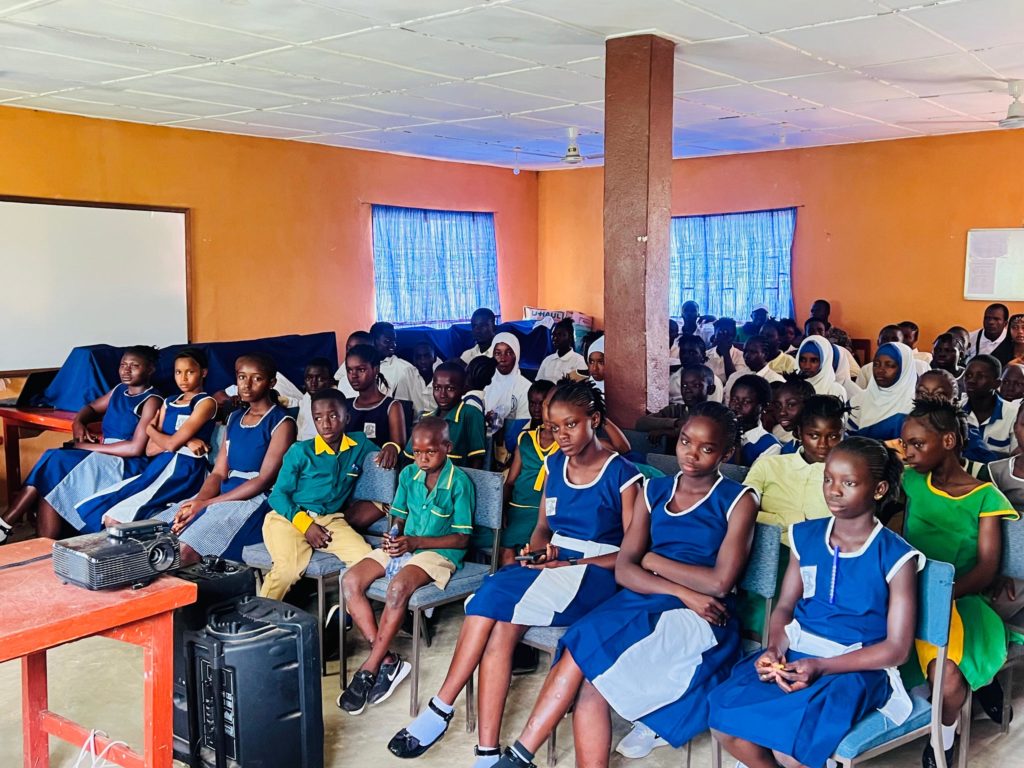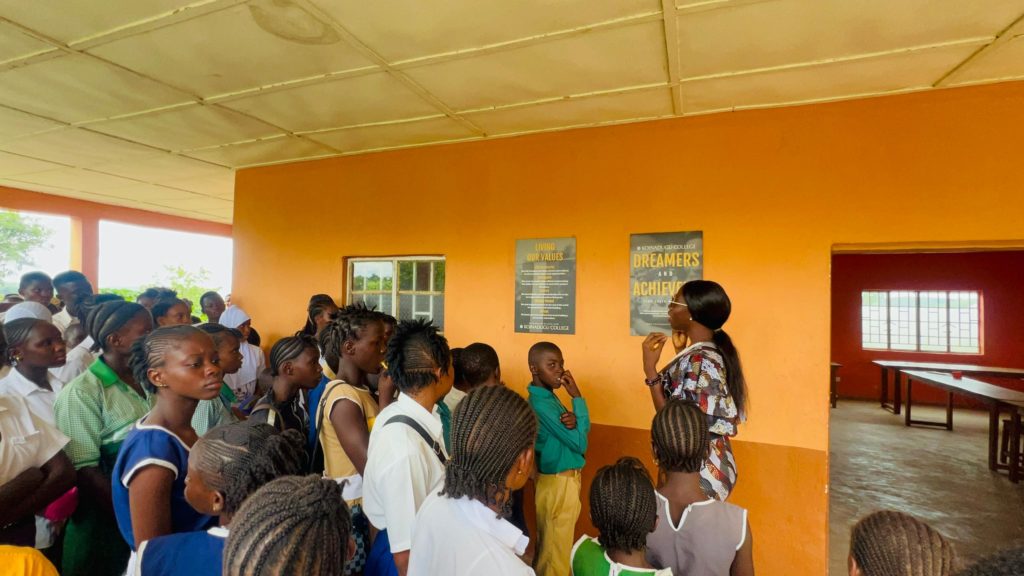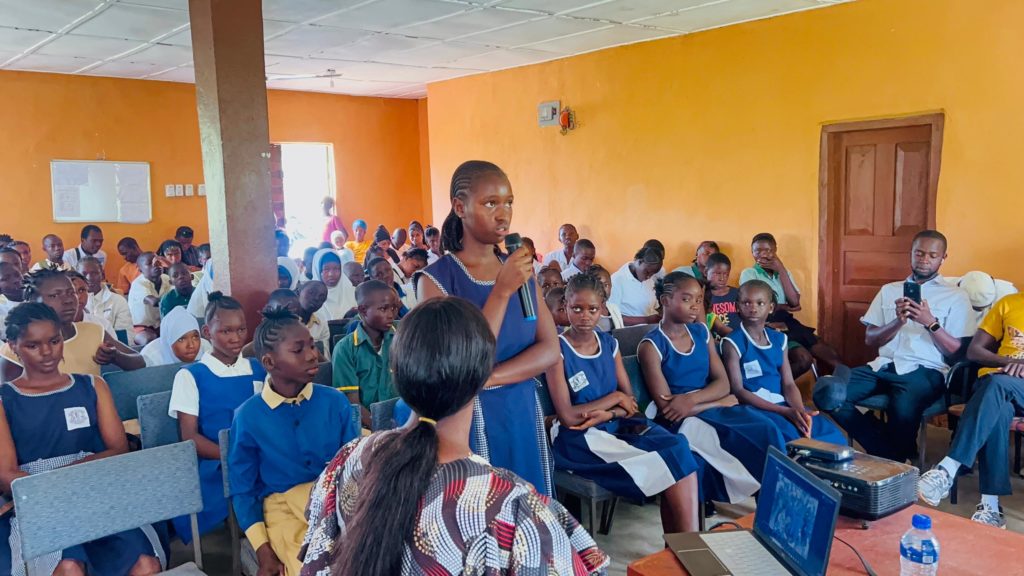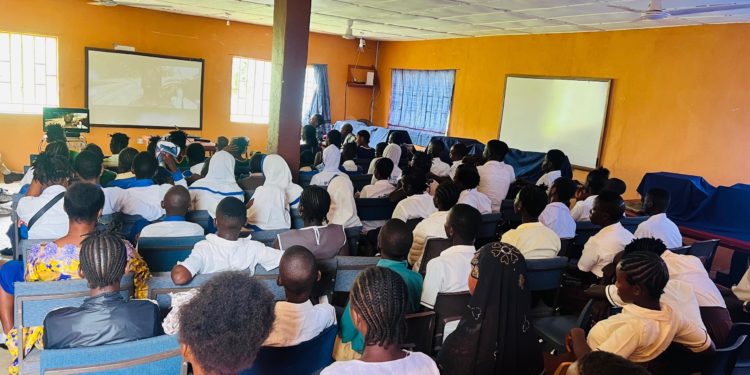By Patricia M. Conteh

Koinadugu College (KC) has hosted its first symposium celebrating the Day of the African Child.
The symposium organized in collaboration with Project 1808 was held both in-person and virtually, bringing together participants from 11 primary and secondary schools in Kabala, the district headquarters and its outskirts.
The Day of the African Child, which is commemorated on June 16, remembers the Soweto Uprising of 1976, where students protested against the apartheid regime’s language policy and were brutally repressed by the police. The day is a reminder of the students’ sacrifice and a call to action for better education and equality for all African children.
The symposium was convened on the topic: “Leading Change Through Pathways for Progress (LC-P2P), an initiative by the college and Project 1808, which is geared towards empowering young people through leadership, entrepreneurship, sustainable development for positive impacts on community improvement, economic advancement, civic responsibility, and youth investment. The event was therefore themed: ‘Breaking Barriers – Building on the African Cultural Foundation for Innovation, Entrepreneurship, Research and Development in Sierra Leone and Africa;’ and it focused on having honest educational discussions on ways to utilize the African culture and values to achieve individual and collective development.
The event featured several guest speakers who made virtual presentations, deliberating on the need to use culture to promote sustainability and develop solutions through entrepreneurial initiatives in driving community and national growth.
Dr. Sylivia Tsitsi Juta, a board member for Koinadugu College, who is also a Lecturer at the Milton Margai Technical University, spoke on the importance of entrepreneurship and self empowerment. She encouraged the students and other participants to be problem solvers by identifying and tapping on entrepreneurial opportunities within their communities.
“Be a problem solver instead of always complaining about the problems,” she said. “Use who you are to create businesses that could be appreciated by others. Turn your passion into a business and build from your cultural values.”
A similar view was shared by Mr. Jeremiah Thoronka, an award-winning innovator and entrepreneur currently pursing a PhD in Social Innovation and Sustainability. He called for the use of culture in developing solutions within communities and projects. He described culture as the engine of development, while using the seven lenses of culture of Ali Mazrui in explaining this thought.
“Culture is now an economic output in Africa. Cultural tourism now contributes to 10% of the global economy,” he said, urging the participants to learn from their different cultures and endeavour to understand the socio-cultural landscape to solving problems within any community or project implementation.
“Culture helps us to find the problems as well as develop solutions,” he added.

Professor Kawulay Kamara, another guest speaker who is multi-media storyteller and a lecturer, spoke on the relevance of storytelling in building identity and national and global recognition. He described storytelling as the “core of culture,” stating: “the story you tell is your identity and how you make sense of your environment.”
Mr Kamara also termed storytelling as a form of liberation. “There are values embedded in every story. They give us a name and explain our values,” he said.
Mukeh Fahnbulleh, another guest speaker, gave a thought-provoking presentation on the topic “Unlocking Africa’s Innovation potential: leveraging cultural heritage for sustainable development.” His presentation focused on issues of African development.
“Are we experiencing negative or positive development in Africa?” he asked, stating that development cannot be separated from culture or cultural values.
Other educational activities during the commemoration included the screening of a movie titled: ‘The boy who harnessed the wind.’ This movie was selected as the British entry for the Best International Feature film at the 92nd Academy Award.
Students later had the opportunity to ask questions and share their thoughts on the presentations as well as lessons learnt from the movie. They were also taken on a conducted tour of the college campus to view the facilities and current projects implemented by students.
A certificate of participation was presented to the schools and other participants at the end of the event.
Koinadugu College and Project 1808 believes that such event will build on cultural educational awareness and relevance – an education that is linked to the community needs. The two institutions also believe in the need to solve problems using culture as a foundation for innovation, against the narrative of it being a barrier.























